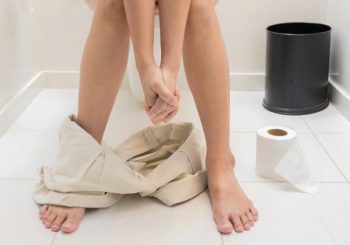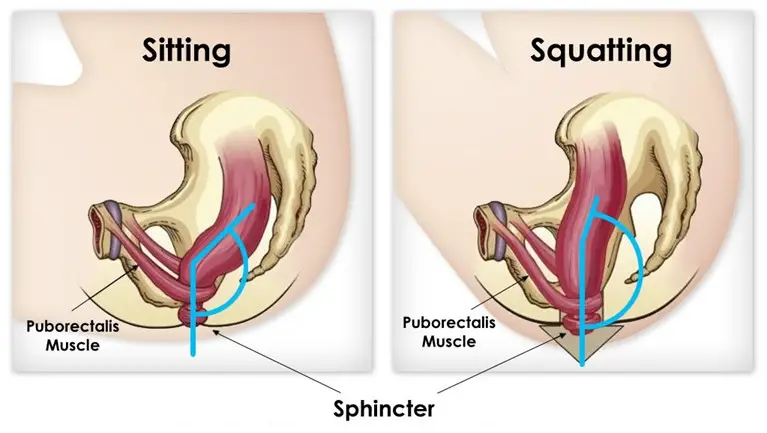 By Nikki Harper
By Nikki Harper
Staff Writer for Wake Up World
Most of us don’t tend to talk about our toilet habits in polite society, or even with our loved ones, but actually a better understanding of the body’s elimination system could benefit all of our digestive health. Over many centuries, many countries have lost touch with the way humans are designed to eliminate waste, which has led to unhelpful toilet designs and toileting habits.
We know that spending too much time not exercising or hunched over our screens is bad for our health, because we know the human body wasn’t designed for this. Yet when it comes to using the toilet, we’re happy to put up with a multitude of gut and digestion issues and with toileting in a way that nature simply didn’t intend.
Think about it. Most of us sit on the toilet with our feet on the floor, sitting up straight. In this posture, part of the colon is squeezed shut, obstructing the elimination pathway, and tugging the rectum out of line of where it should be at this crucial moment. No wonder people take books or magazines into the bathroom and are prepared to spend a while in there! Natural body elimination shouldn’t take so much time, let alone effort.
In our seated position, without a clear elimination pathway, waste can’t leave the body efficiently or adequately. This leads to all manner of health issues such as constipation, diverticulosis, haemorrhoids and gut infections. With fecal matter left to sit in the colon to rot, harmful bacteria can easily disturb the fragile digestive system – no wonder so many of us suffer from stomach ache and toxic digestive issues.
So if sitting on the toilet is all wrong, what should be we doing instead? Well, what do you think we did before this kind of toilet design was invented? What do people still do in the developing world as well as many parts of Africa and Asia and some parts of southern Europe? Squat!
The physical act of squatting serves a dual purpose – it straightens the rectum and it also relaxes surrounding muscles, allowing for each – and complete – elimination. Studies have found that sitting to defecate requires excess strain and that squatting notably reduces strain and increases elimination efficiency [1].
In countries where squat toilets are widespread, you should have no trouble adapting to this ‘new’ way of toileting, even if you’ve always been used to sitting on the toilet. However, if you live elsewhere, where sitting toilets are the norm, how can you start squatting for better elimination?
Well, if you’re agile enough, you could try perching on the toilet, by sitting down as you normally would but then drawing your feet up and inwards towards you, placing your feet on the toilet seat. Hugging your knees can strengthen this position and make it feel more secure if you feel wobbly. This position will relax the colon and make elimination easier. You may feel rather odd at first, but once mastered, this is an easy way to get at least some of the benefit of squatting.
If you’re not ready or not able to give that a go, think about bringing a low-medium height stool into the bathroom and having it near the toilet. When you sit on the toilet, put your feet on the stool close to you. This will bring your knees closer to your body, which, although not the same as squatting is still an improvement on the sitting posture. The point of the squatting posture is to have your feet and your buttocks on roughly the same level, in order to achieve the correct angle for elimination, but it doesn’t matter what your feet are supported on in order to achieve this, or whether you’re taking your weight on your feet or not.
Another alternative is within everyone’s reach, even if you’re not at all flexible. Simply sit on the toilet as you normally would, but then put your elbows on your knees, fold yourself forwards and look down at the floor. A study which looked into this method calls this pose ‘the thinker’, after the famous statue of the same name – and researchers found that it achieves more efficient defecation than sitting, and can be helpful for people who are suffering from constipation [2].
Why not give it a try? Whether you have digestive problems or not, you should find that you experience easier and more ‘satisfying’ elimination in any of these postures than you do when sitting normally. It all helps towards your body working in the way it was designed to – and what’s not to love about that?
References:
About the author:
Nikki Harper is a spiritualist writer, astrologer, and editor for Wake Up World.
Ancient Taoist masters understood the deep connection between our bodies, emotions, and the cosmos. The upcoming event, Light Your Inner Fire With Cosmic Synergy Qigong, invites you to explore this powerful fusion of Qigong, Traditional Chinese Medicine, and Taoist wisdom, helping you unlock your full potential. Join us to discover transformative practices for healing, balance, and spiritual growth!
In this free online event, you’ll learn techniques like the Dantien Fire Meditation to ignite vitality and emotional well-being. Plus, discover how to activate the Microcosmic Orbit to dissolve energy blockages and restore the natural flow of energy throughout your body. Don’t miss your chance to gain valuable insights and tools—reserve your spot today!
Embrace the opportunity to harmonize your body’s energy with the forces of nature, transforming negative emotions into positive healing forces. Sign up now and ignite your inner fire!
If you’ve found value in our articles, we invite you to support the release of our brand-new book, “Gratitude Practices for Kids: A Practical Guide for Adults to Instill a Spirit of Appreciation and Positivity in the Next Generation.“
“Gratitude Practices for Kids” brings together over 25 innovative and accessible practices designed to enhance gratitude in everyday life. This comprehensive guide is backed by 17 scientific studies, ensuring each concept is grounded in research, underscoring our commitment to nurturing growth, emotional intelligence, and positive interactions between adults and children.
We encourage you to opt for the paperback version to celebrate this new release. Dive into its fresh pages away from digital distractions, allowing you to immerse yourself in the transformative practices it offers.
Over recent years, Wake Up World has faced significant online censorship, which has impacted our financial ability to operate. Moving into book publishing represents a strategic step to secure the ongoing funds needed to continue our mission. By purchasing Gratitude for Kids, you help us keep our content free and accessible to everyone, avoiding needing a paywall. With over 8,500 articles published in the last 13 years, we remain dedicated to keeping our valuable content open to all.









